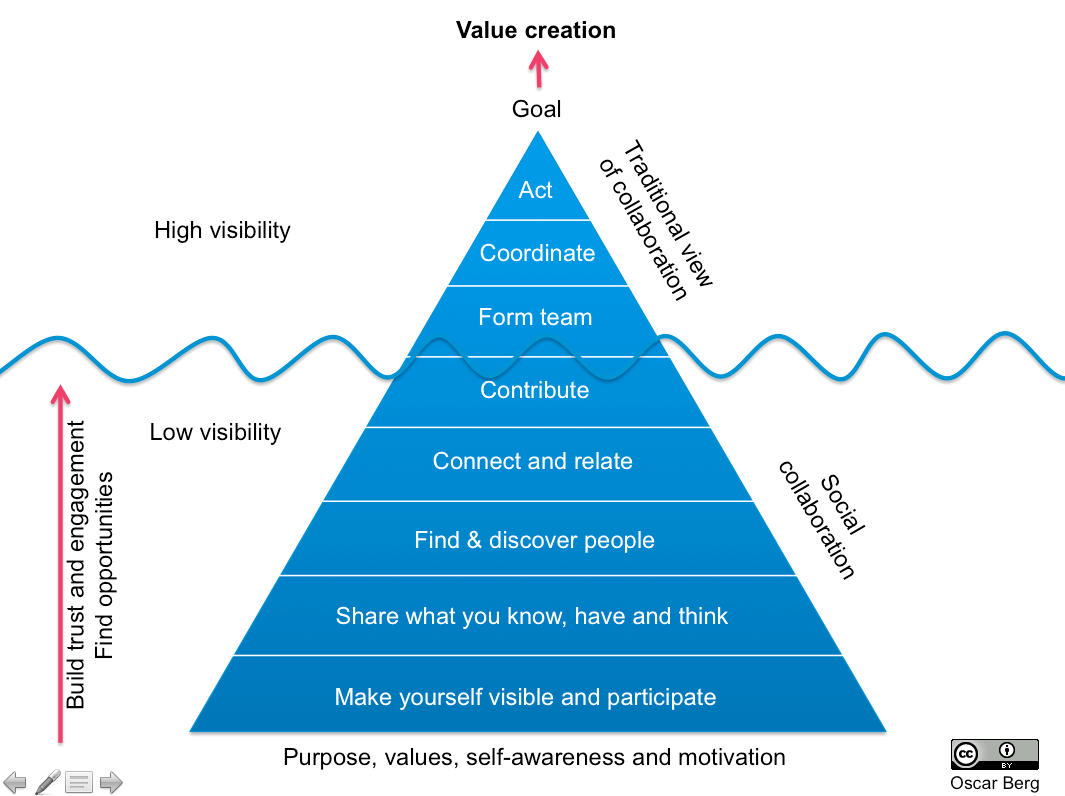Can Social Business Collaboration Trigger The Next Economic Revolution?
By Phil Maurer. Published 9. May 2016.
The industrial revolution of the late 1800s and early 1900s shifted work from agriculture to factories. And the next big shift, what some are calling the fourth industrial revolution, is already in full swing. In part, it’s due to a revolutionary force within today’s businesses—the ability for individuals and groups to collaborate on untold scale, resulting in unheard-of innovations.
What is social business collaboration?
Social collaboration means processes that help people or groups interact and share information to achieve common goals, says Wikipedia. Adding a business dimension to this means that workers who are tasked to achieve common business goals are finding new methods of collaborating in order to achieve these goals faster, more elegantly and more efficiently. Naturally, the web plays a key role, as do apps and other technological advances.
The key is sharing and combining brainpower. Sharing concepts on a digital collaboration environment enables brainstorming on a grander scale, where new ideas emerge due to the varied contributions of individuals and the technologies that they can put into play.
The power to self-organize
But the real value in business collaboration may ultimately lie in giving individuals and groups “The Power to Self-Organize,” as defined by this excellent article from Mumba on the impact social business collaboration has on human resources. Case in point: “Here is perhaps the biggest revolution facing employee engagement opportunities – the enablement of ‘go-getters.’ One of the most worn-out epithets attached to social collaboration networks is that they ‘flatten the organisation.’ But the cliché is not a myth, enterprise social networks genuinely destroy hierarchy and even create” new innovative arenas.
The Harvard Business Review’s Michael Shrage describes this as the Gray Market. “Initiators and intrapreneurs aren’t just using social media to make their efforts more transparent and accessible, they’re using these platforms to improvise and organize new ways to get the job done. They’re using these tool and technologies to add value to existing processes or, indeed, to create new ‘just-in-time’ processes (and programs) that the C-suite and other senior managers had never envisioned.”
Yet, as Oscar Berg points out, much of what we think of as traditional collaboration is actually hidden below the surface, where the efforts are not typically seen, or valued. “What we see when we think of collaboration in the traditional sense (structured team-based collaboration) is the tip of the iceberg – teams who are coordinating their actions to achieve some goal … Below the surface you typically find…other kinds of broader and ad hoc collaboration (social collaboration) than those that fit within the traditional definition of (structured, team-based) collaboration.”

But just because these efforts may not be seen at the managerial level doesn’t mean the impact isn’t felt throughout the organization—and into the marketplace.
How social collaboration triggers a new economic revolution
Mumba further points out that social business collaboration enabling self-organizing results in acceleration of business innovation. “This is why so much folklore of graduates achieving leadership positions in lightning speed are bleeding out of the organisations that have deployed social collaboration networks.” Meaning, those who have innovative ideas can make them happen lightning-fast. There are no longer impediments such as time, employer recognition, internal politics and geography.
The ability to share ideas, bring your own tools and devices to work, and work unhampered by location and organization means revolutionaries are already taking hold. Don’t believe it? Four words: Millennials in the workplace. This group eschews email, self-organizes on social media and feels entitled to forego company tools and simply bring in their own in order to get their jobs done—and do their jobs better.
This ability to collaborate socially in business is leading to innovations in all marketplaces. Indeed, the sharing economy—aka, the rise of the Ubers and Airbnbs—is due largely to entrepreneurs’ ability to formally or informally collaborate socially to achieve business goals and even disrupt and revolutionize markets.
The lesson for businesses to heed is simple: social business collaboration is to be embraced. Within the next five or so years, it will become the norm rather than the exception.


